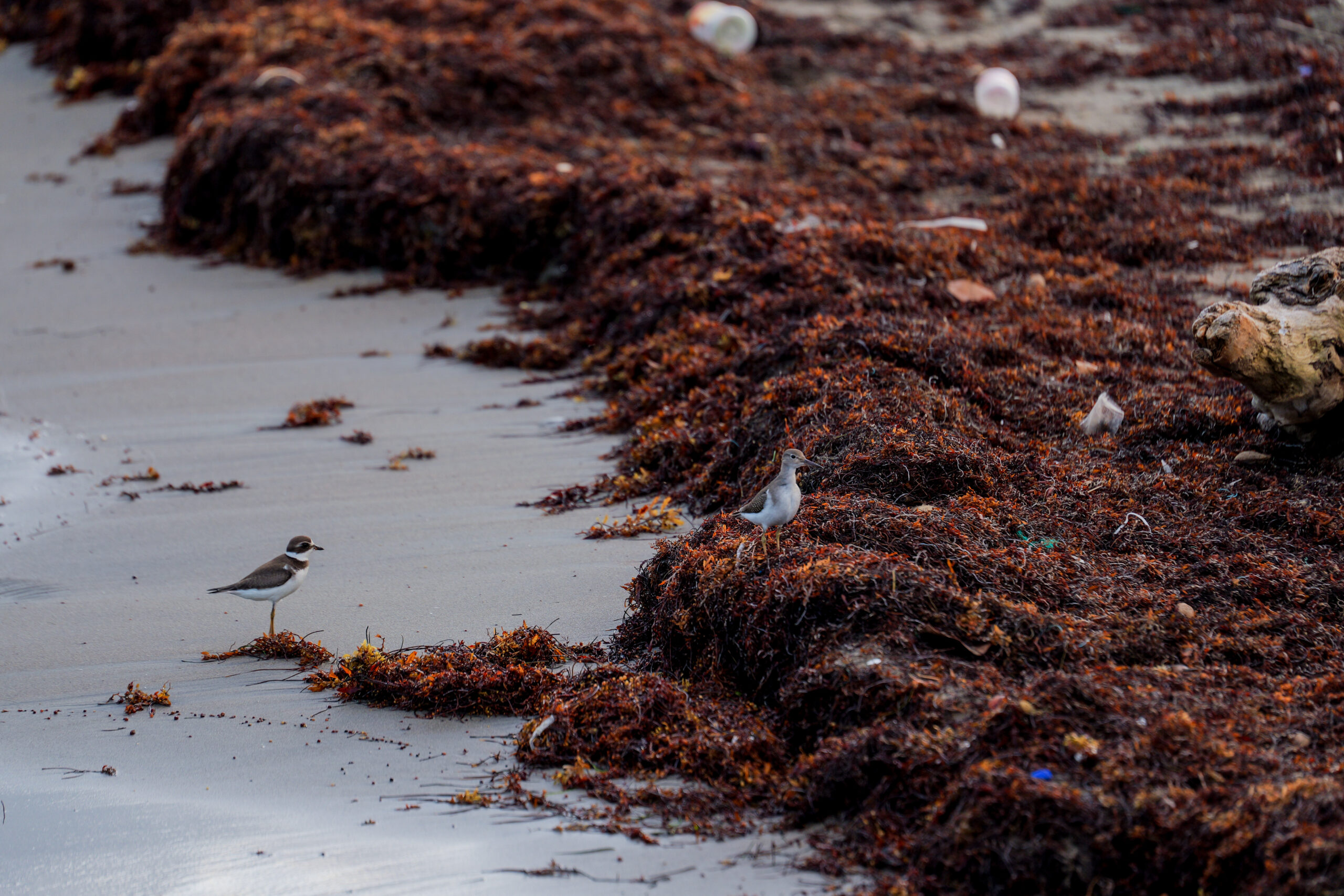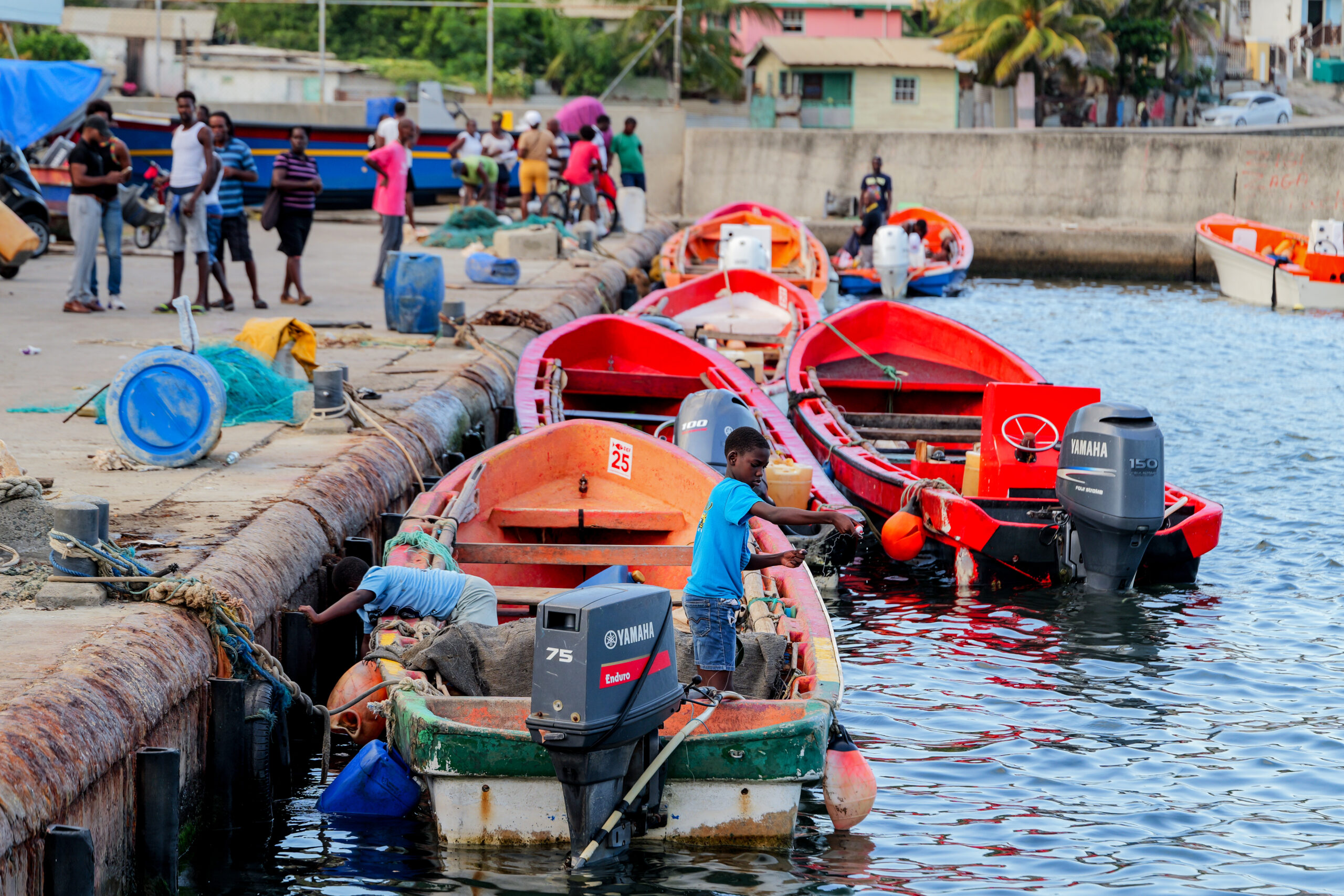For many years, Saint Lucians along the east and south coasts have come to expect the seasonal arrival of sargassum seaweed which covers beaches, harms marine life, and leaves a lingering, unpleasant odour. This year, however, the phenomenon took a worrying twist. Beginning in April 2025, large amounts of sargassum were reported for the first time along the north and west coasts, affecting areas including Castries, Dennery, Choiseul, and Soufrière.

“This year has been unlike any other,” said Saphira Hunt, Caribbean programme officer at Durrell Wildlife Conservation Trust, in a previous St. Lucia Times article. She explained that climate change is pushing the seaweed further than before. Warmer waters and shifting wind patterns have altered its course, making once-safe coastlines vulnerable.

Fast forward to today, although the brown tide has now cleared from the nation’s shores, fishermen at the Dennery Fishing Complex say they remain deeply concerned about its impact. For many, the piles of seaweed made daily work nearly impossible.
“Certain times we wouldn’t be able to pull our boats down because the seaweed makes a mountain,” fisherman Hurby Gilbert recalled. He added that after docking, “we couldn’t wash our boats as well as the smell.”

Veteran fisherman Kurby Fontenelle, who has been at sea since the age of 13, said the seaweed decays quickly once it arrives. “When it came to shore, it stayed there and got smelly and black,” he explained. While Fontenelle noted that fishing itself was not heavily disrupted, he acknowledged that the seaweed “has its tough and bright days, it cannot be equal all the time”.
Other fishermen highlighted serious damage to equipment. Sadam Gedeon, who has fished for 15 years, explained that “seaweed blocks the impeller, which blocks the hole, which could burn it. A lot of people burnt their impeller.”

He added that the seaweed also “affects the engine… it changes the colour of the boat, makes it get black”.
Beyond the docks, residents complained of air pollution as rotting sargassum released noxious gases. “It affects people’s TV, and homes, and they can’t breathe good air,” Gedeon said. He argued that the government should provide more support for fishermen, including boat houses and better facilities.
A passerby expressed concern that the issue is not being taken seriously enough. “That should be a concern to the government as it’s a source of food for the community,” he said. Another fisherman added pointedly, “Farmers getting benefits and fishermen don’t.”

The crisis is not unique to Saint Lucia. According to the Associated Press, more than 38 million metric tons of sargassum drifted across the Caribbean in May 2025, the largest mass ever recorded. The US National Oceanic and Atmospheric Administration warns that while sargassum provides habitat for fish and turtles in the open ocean, it threatens coral reefs, seagrass beds and human health when it rots on shore.
Across the region, governments and scientists are testing solutions. Satellite monitoring tools like the Sargassum Watch System at the University of South Florida and Mexico’s LANOT platform provide forecasts that could help Saint Lucia prepare by using satellite imagery to monitor and map the seaweed. Onshore, floating barriers, improved cleanup methods, and pilot projects to turn seaweed into fertiliser, building materials, or biofuel are being explored but challenges remain.

Processing plants are costly, and the seaweed’s high salt and heavy metal content make it difficult to repurpose. Experts say regional cooperation will be key, with countries like Mexico and the Dominican Republic already pushing for joint action.
For now, the tide has shifted and Saint Lucia’s beaches are clear but fishermen warn the problem is far from over. The sargassum will return, and when it does, they want to see stronger support. As one fisherman put it, all their savings go into equipment, and when the sargassum comes, it puts both their work and their livelihoods at risk.





“Government support “. “ Government bailouts”Yes the government should support fisher folks with the necessary literacy of establishing their own “rainy days cooperative entity or board “ for moments that are crippling to your way of life such as this. Members would contribute a small amount monthly to this fund upon which they can turn to in hard times for some financial relief. The government cannot bail out every one.